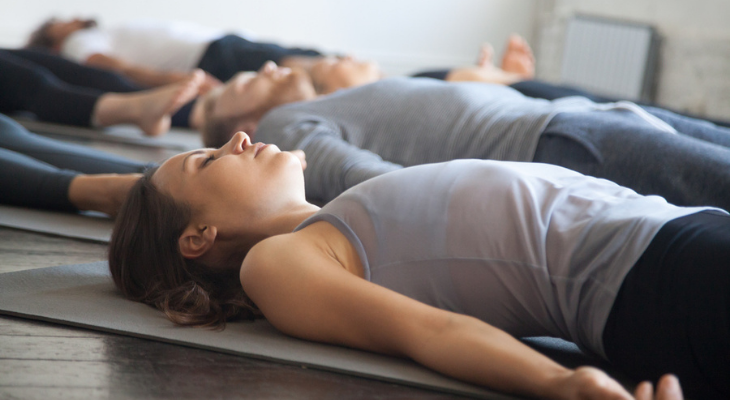
Yoga Offers a Natural Way to Handle Stress in the New Year
Would you like to handle your stress better this year? Chronic stress affects both your physical and mental health, increasing your risk of heart attack, stroke, high blood pressure, obesity, anxiety, and depression. Luckily, adding "enroll in a yoga class" to your list of New Year's resolutions will help you keep your stress under control.
Practicing Yoga Counters Stress
Stress is a common problem in the U.S. In fact, 55 percent of us feel stressed during the day, according to the American Institute of Stress (AIS). The AIS reports that women and people ages 30 to 49 feel the most stressed.
If you're one of the millions of people trying to balance work, family, and social life, you may wonder if it's really possible to decrease your stress level. No matter what challenges you face, yoga can help you manage your stress and even change the way you react to stressful situations in the future.
You May Notice Fewer Aches and Pains When You Practice Yoga Regularly
When you're rushing to meet a deadline or worried about your child's problems at school, the muscles in your neck, shoulders, and upper back tighten painfully. Soon after, you may notice you have a headache or stomachache. Yoga helps you avoid uncomfortable physical symptoms by giving you the tools you need to handle stress.
Performing yoga poses loosens tight muscles and improves blood circulation to your tissues, which helps you avoid muscle pain and headaches. Yoga also prompts your body to produce endorphins, hormones that act as natural pain killers.
Yoga can even reduce irritable bowel syndrome (IBS) symptoms, which often flare up during times of stress. A systematic review in Clinical Gastroenterology and Hepatology revealed that practicing yoga decreases bowel symptoms, anxiety, and IBS severity while improving physical function and quality of life.
Yoga Helps You Stay Calm
Meditation, a key component of your yoga practice, relieves stressful feelings and can be practiced anywhere. When you meditate, you'll push all thoughts out of your mind while you repeat a mantra or focus on a relaxing image. Yogic breathing performed during yoga poses and meditation also helps reduce anxiety and stress and helps you center yourself. If you take a few minutes to meditate and practice yoga during a difficult situation, you may be able to prevent stress from ruining your day. Both short and long yoga sessions help your body produce more serotonin. The natural chemical boosts your mood and makes you feel calm and relaxed.
The next time you're feeling stressed, try the corpse pose. This simple pose decreases stress and helps you feel more relaxed. The corpse pose is performed while you lie on your back with your palms facing up, your arms at your sides, and your legs slightly separated. As you practice the pose, you'll focus on releasing tension throughout your entire body starting from your feet and working your way upward.
Sleeping Through the Night Becomes Easier
It's impossible to fall asleep or stay asleep when worries or obsessive thoughts keep flooding your brain. Yoga and meditation offer a natural solution to poor sleep. Practicing yoga reduces tension and pain in your body, while meditation helps you let go of troubling thoughts. If you do start to feel tense when you're lying in bed, a meditation session can help you relax and drift off to sleep.
Are you looking forward to a less stressful New Year? Yoga can help you achieve your goal. If you're ready to put stress behind you in the coming year, contact us to enroll in a yoga class series.
Sources:
The American Institute of Stress: 42 Worrying Workplace Stress Statistics, 925/19
Psychology Today: Yoga for Stress Relief, 12/18/15
Harvard Health Publishing: Mindfulness, Meditation May Ease Anxiety, Mental Stress, 1/18/14
